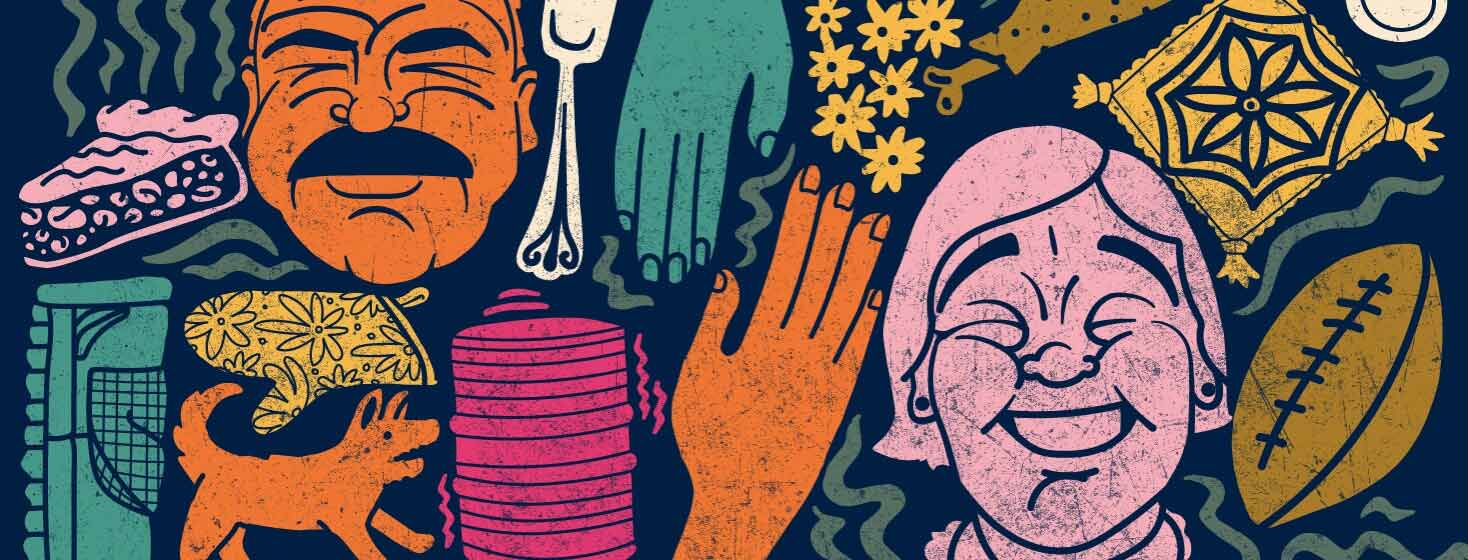Why the Holidays Can Be Hard
Every year around this time, I find myself confused about my emotions. Sometimes I feel happiness and excitement about the holiday season; other times I feel lingering sadness or even some moments of despair. Every year when this happens it takes me a few minutes, hours, or days to pinpoint what exactly is going on: grief.
How the holidays have changed...
Growing up, every single year we would celebrate Thanksgiving with my dad’s family. Like many other families, we would wake up and watch the parade on TV, spend hours cooking and taking in all the yummy smells, and spend time on the couch watching football. An extra tradition shared by my grandfather and I was taking a nap, inevitably during the football game, side by side on the couch.
It has been many years now that neither of my grandparents have been present for the holidays. My grandmother died when I was 5 after a long battle with leukemia. My grandfather lived until he was 93 and I was fortunate to know him into my twenties. I still think of both of my grandparents every year on Thanksgiving, and feel like some piece of the day is missing.
Finding ways to cope with grief
Even though the holidays are such a special time, during which we gather together with family and friends, eat delicious food, and celebrate in happiness, there is a bittersweet feeling that hangs in the air for many. Whether you have lost a loved one or you or a loved one are currently fighting cancer, it is a fairly common occurrence that holidays present joy and sadness simultaneously. And it is also typical that individuals find it difficult to grapple with these emotions at the same time.
After acknowledging that yes, the holidays can be hard, what can you do about it? Having a practice of gratitude, especially at Thanksgiving, can ease the burden. It may be easier to do this in a personal way, such as journaling, either about a loved one you are missing or about your own experience. Perhaps writing about some of the losses you’ve been dealing with, as well as some of the things for which you are grateful, will help set your mind at ease. Alternatively, you could create a group gratitude activity.
Gratitude jar
Set a big jar out on your dining room table along with index cards or pieces of paper. Encourage people to write things like “thank you” or “grateful” on one side of the card. On the other side, people can write about things either that they are grateful for in the present or memories about loved ones they have lost, and place them in the jar. Plan a time, perhaps at the beginning of the Thanksgiving meal or before dessert, to take the cards out of the jar and read them aloud. Alternatively, you could hang the cards up on the wall.
Holding joy and pain simultaneously is not an easy thing, but having a gratitude practice can be incredibly helpful. Wishing you warmth and gratitude wherever and however you are spending Thanksgiving.

Join the conversation